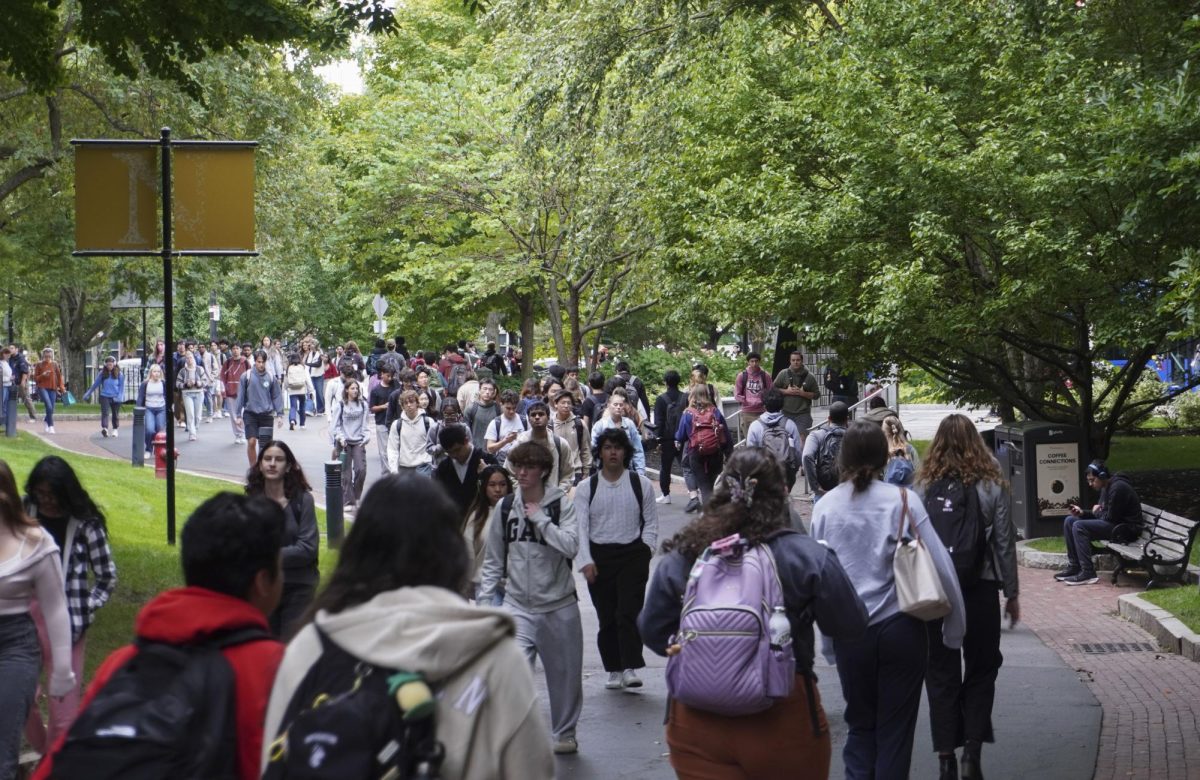By Michele Richinick
School administrators often caution students about the information they post on social networking sites like Facebook. After recent reports that students cannot delete their own Facebooks, some are wondering what they can do to protect their information.
Paul Hanley, a freshman computer science and biology major, said he knew about this policy because he has deleted and reactivated his account. When he wanted to rejoin the networking site after he deactivated his account, Hanley said he was surprised to find his information still on the server.
“At that point I remembered that there was a message when I [deactivated Facebook] saying, ‘We are sorry to see you go, but will hold on to your information in case you decide to sign up again,'” Hanley said. In an e-mail statement to The News, Brandee Barker, Facebook’s director of corporate communications, explained the two different ways to remove user information from Facebook. The first is to deactivate an account. Once users deactivate their account, their profiles become inaccessible on the main Facebook service, but the data is kept by Facebook to allow easy reactivation.
The second, more difficult option is to delete the profile altogether. When users delete their profiles, their personal information is deleted from Facebook. If users decide to join Facebook again, they need to create a new profile.
According to Facebook’s Help page, many users deactivate their accounts for temporary reasons and expect their information to be there when they return to the service. According to the page, users must specially contact the Facebook headquarters by clicking on the”contact us here” link on the Help page in order to delete a profile.
Some say students are worried about deleting their profile and are seeking to keep information public should never put their information up in the first place. “The fact is, anytime you put anything out there on the Internet, it is public domain. You have no control over it in the larger scheme of things,” said Katherine McLaughlin, Northeastern’s music and theatre co-op coordinator.”There is no such thing as privacy on the web. You may delete your Facebook page, but parts of it are never going to go away. They’ll be out there somewhere because anything you put on the web can always be there. You may have to hunt to find them, but they will be there.”
McLaughlin said when employers are considering whether to hire a co-op, they often don’t have enough information to formulate an opinion of the student. If the employer has two great candidates, they will use any extra information they can find, she said.
“If you have things up on Facebook that they find online, they can use that to make their decision,” she said.”If you have something on there that is controversial, they might take the other person as a safer bet.”
Students like Chris Herbert, a middler music industry major, said they are not concerned with Facebook’s deletion policies.
“I don’t think the implications are terrible because it’s not like I’m running for president or something,” Herbert said.”[The policy] sounds like a waste of space in [Facebook’s] system, so it’s mostly their problem. I don’t see it affecting me.”
Barker said Facebook is working to better explain the deactivation process, and to ease the deletion process for those who want their personal information removed from the Facebook servers.
Hanley said people are warned before they sign up and should be wary.
“The implications I see are a potential breach of privacy information, but that’s only if people provide it to Facebook at some point,” Hanley said.”It is worrisome, but as long as people take care not to put anything overly sensitive on their profile pages, there should be no harm done.” Depending on what area of discipline a student is studying, information on Facebook may or may not be an issue, McLaughlin said. A lot of good can come out of the site, too, especially to make connections in a certain industry, she said.
“Frankly, most things that are up on Facebook or Myspace really aren’t problematic,” McLaughlin said.”In some areas there are bigger issues. For example, if you are in healthcare or finance, those areas are going to be stricter. But if you are a music or theatre major, it is less strict because it is a more liberal industry and employers are relaxed about things. However, people are being more sensible about what you put out there and realizing it’s not private. You’ve got to be careful.”









